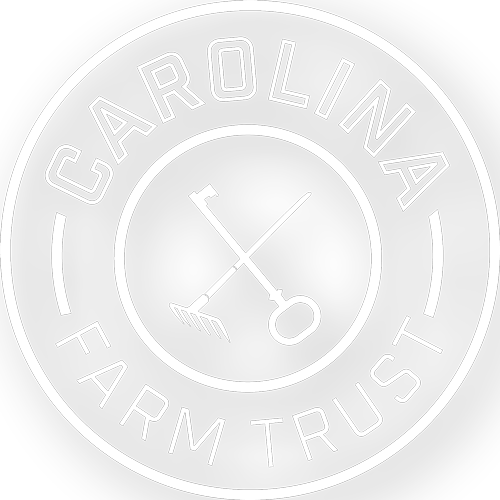our food system
is at a breaking point
In North Carolina, too many families lack access to food, especially nutritional food.
Carolina Farm Trust firmly believes that our current food system is no longer reliable. Food is not only a human right, but taking care of our people and planet is necessary. Accessing healthy food should not depend on race, sexual orientation, country of origin, or socioeconomic status.
Food access is a state, region, and community issue that affects us all, and it is going to take intentional, collaborative work to make sure that everyone has access to sufficient, nutritious food. If we do urban agriculture sustainably, then we solve not just food insecurity, but also environmental concerns and even societal issues like employment and healthcare.
More about the challenges below or read more about our answer.
Real people facing real problems
The population of urbanized cities are suffering from a lower quality of life due to environmental reasons such as food and water scarcity, pollution and sanitation. This is leading to the spread of disease and poor health in heavily populated areas. Trends towards urbanization and industrialization of farms often lead to the displacement of people, particularly those from low-income backgrounds, who are unable to keep up with the rising costs of living in urban areas or compete with large agribusinesses. Urban development needs balanced out with careful planning for sustainability as the rapid population increase leads to many people needing resources such as food, water, fuel, and waste management. This increase leads to a decline in employment opportunities, increase in poverty, crime rates, poor housing conditions and environmental hazards.
As our society continues to grow and expand, urban development and factory farming practices have become increasingly prevalent. While these practices may seem beneficial in terms of efficiency and productivity, they often come with negative consequences for the people and our local food systems.
Factory farming, for example, can be criticized for its negative impact on animal welfare, decreasing the quality of our food and harming the environment as they are a major contributor to greenhouse gas emissions and water pollution.
Urban development is leading to the destruction of farmland and the displacement of local farmers. This can make it difficult for communities to access fresh, locally grown produce creating a reliance on the transportation of food from distant locations. This contributes to carbon emissions and the increase of food costs as well.
The expansion of industrial agriculture also often means the destruction of natural habitats and ecosystems, which can lead to environmental degradation and negative health outcomes for residents in affected areas. The use of harmful pesticides and chemicals used can negatively impact the health of both agricultural workers and consumers.
Though urban roads are paved with good intentions we must balance it out with solutions that prioritize the well-being of both the people and the planet. Strengthening our local food systems by transitioning into local, sustainable and regenerative farming practices is that solution. This will involve supporting small-scale farmers, implementing more sustainable farming practices, and promoting urban agriculture initiatives. By doing so, we can help ensure that our local food systems remain healthy and thriving for generations to come.
Carolina Farm Trust is starting this change in the growing Charlotte area, then expanding into the Carolinas and beyond.
Researchers at the University of North Carolina’s Kenan-Flagler Business School named Charlotte the No. 8 fastest-growing city in the country as part of its 2022 American Growth Project and by 2050, 68% of the world population is projected to live in urban areas.
Our Answer is Integrative.
Food challenges
Rising food insecurity and cost – while nutrient density decreases.
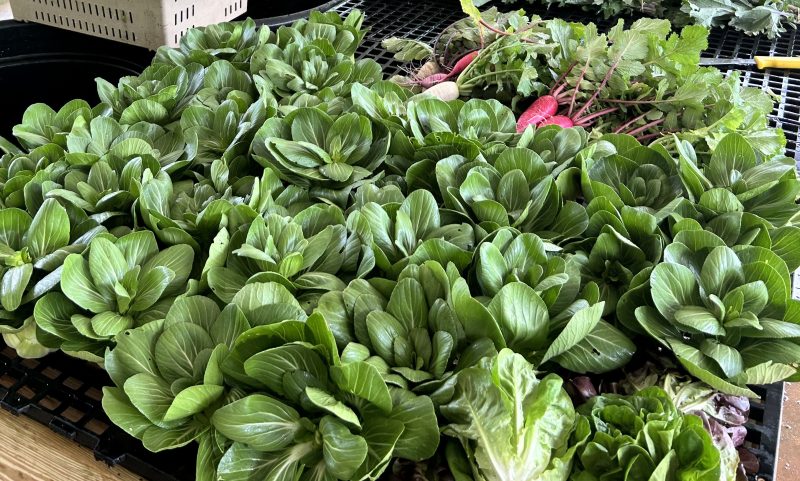
Food costs and insecurity are increasing, and at the same time, food is losing nutrient density due to a combination of factors such as climate change, industrialization of agriculture, food waste, and income inequality.
The industrialization of agriculture has led to the use of pesticides and fertilizers, which can degrade the quality of our soil and reduce the nutrient density of our food. This is because these chemicals can kill beneficial microorganisms in the soil that are essential for healthy plant growth. These types of farming practices like factory farms and mono-crops are also a major contributor to climate change leading to more problems for our food.
Climate change is causing extreme weather events such as droughts and floods, which can damage crops and reduce yields. This leads to less food being available, which can drive up prices. In addition, climate change is also affecting the quality of our food by altering the nutrient content of crops. For example, higher levels of carbon dioxide in the atmosphere can cause crops to have lower levels of nutrients such as iron and zinc.
Food waste is another major contributor to food insecurity. Approximately one-third of all food produced in the world is wasted, which means that there is less food available for those who need it. This waste can occur at every stage of the food production and distribution process, from the farm to the grocery store to the consumer’s home.
Income inequality is also a factor in food insecurity. People who live in poverty often cannot afford to buy healthy, nutrient-dense foods, which can lead to malnutrition and other health problems. Addressing these issues will require a multi-faceted approach that involves changes in public policy, consumer behavior, and agricultural practices.
Local regenerative farming is a sustainable and environmentally friendly method of agriculture that can help address a range of important issues, including food costs, food insecurity, and nutrient density. One of the main benefits of this type of farming is that it supports the production of fresh, healthy, and nutrient-rich foods that are grown in a way that prioritizes the health of the soil, the plants, and the animals involved.
By supporting local regenerative farmers, consumers can help to reduce their reliance on processed and packaged foods which are often high in calories, low in nutrients, and expensive to produce and transport. Instead, they can enjoy locally grown fruits, vegetables, and animal products that are often more affordable, more flavorful, and more nutritious than their industrial counterparts.
Reducing food costs and promoting nutrient density, local regenerative farming can also help to address food insecurity by increasing access to fresh, healthy, and affordable foods in underserved communities. This is because many regenerative farmers prioritize community-based production and distribution models that prioritize the needs of local residents and support local food systems.
Local regenerative farming is an important and effective way to support a more sustainable, equitable, and nutritious food system that benefits both people and the planet.
Environmental
challenges
Losing farmland, soil depletion and climate change
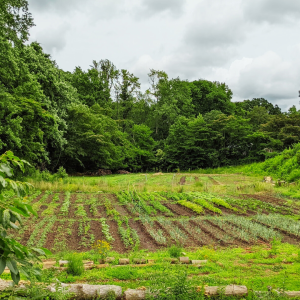
Urbanization and industrialization of farms have had a significant impact on the environment, leading to various issues such as loss of farmland, soil depletion and climate change. One of the major impacts of urbanization is the conversion of farmlands into urban areas, which reduces the amount of agricultural land available for farming. This, in turn, leads to a decrease in the production of food and other agricultural products, which can have a significant impact on food security.
Soil depletion occurs as the use of synthetic fertilizers, pesticides and other chemicals can damage the soil and reduce its fertility. This can result in a decrease in crop yields, as well as the loss of biodiversity in the area. Additionally, the overuse of water for irrigation purposes can lead to water depletion and the degradation of water quality in nearby bodies of water.
These farming practices also contribute to climate change through the emission of greenhouse gases such as carbon dioxide and methane. The use of fossil fuels for transportation, as well as the production and use of synthetic fertilizers and pesticides, contribute to the emission of these gases and contribute to global warming.
It is important to find ways to mitigate these impacts and to promote sustainable farming practices that protect the environment while also ensuring food security for future generations. By focusing on sustainability, farmers can help to restore the health of their soil, reduce greenhouse gas emissions, and support local communities.
Socioeconomic
challenges
Employment, health care and crime
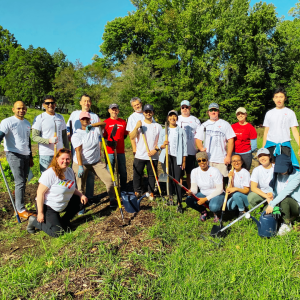
Urbanization and industrialized farming have undoubtedly transformed our society. One of the most significant impacts has been on employment. As cities grow, they become more crowded and competitive, and this can lead to a decrease in job opportunities for many people.
Industrial farming has led to the consolidation of farms, which has resulted in fewer jobs in rural areas. As more people are forced to move to cities, crime rates also tend to increase. This is partly due to the fact that cities are more crowded and offer more opportunities for criminals as well as the stress and pressure of urban life contributing to mental health issues.
As cities grow, healthcare resources become more strained, making it more difficult for people to access the care they need. Industrial farming has led to the widespread use of pesticides and other chemicals, which can have negative health effects on both farm workers and consumers. As people in cities live in more unhealthy environments and the nutrients in our food is being depleted we as a society are becoming sicker and sicker. It is important that we continue to explore ways to mitigate these negative effects and promote a more sustainable and equitable society.
Do you know where your food comes from?
Did you know?
On average, food is trucked over 1,000 miles before arriving in your grocery store. By the time you eat it, your food can lose up to 50% of its nutritional value.
Is getting real food that hard?
Did you know?
About 15% of the population in Mecklenburg County alone struggle to put food on their table. And even more cannot afford nutritious food, opting instead for cheaper and unhealthy packaged foods.
Are you ready for higher grocery bills?
Did you know?
Electricity and diesel costs, as well as many other costs associated with food production, transport, and retail sales, are expected to rise, placing upward pressure on grocery prices.
What's the future of your food?
Did you know?
Increased population and urbanization is pushing local farmers out, yet the demand for farm output is expected to grow by 70% over the next three decades. That means fewer options for consumers to buy healthier, locally-grown food.
Why ask these questions?
Carolina Farm Trust has thought about these questions too – and that’s why we support and build regional farms and the consumption of local food. With your help, Carolina Farm Trust can create a system from production to consumption that will make us all feel good about our food choices. Local farms grow healthy communities, not just healthy food.
are we going to
wait or act now?
Too much is on the line to wait for someone else to fix our food systems. At Carolina Farm Trust, we envision thriving farms, healthy people, and communities intimately connected to their food. Together, we can make this vision a reality.
What do we need to do this transformative work? Well, that would be you! You are the key in helping us succeed. The power lies in our communities.
Are you willing to help us create change, right now?

THE WAYS YOU
can help!
Below are some ways you can help Carolina Farm Trust.
Please fill out the form below to take action in one or more of these ways!
Invite us to come speak to your organization or your community
Host a screening of The Farmer That Feeds Us
Volunteer with us
Become a Corporate Sponsor
Become an Impact Investor

